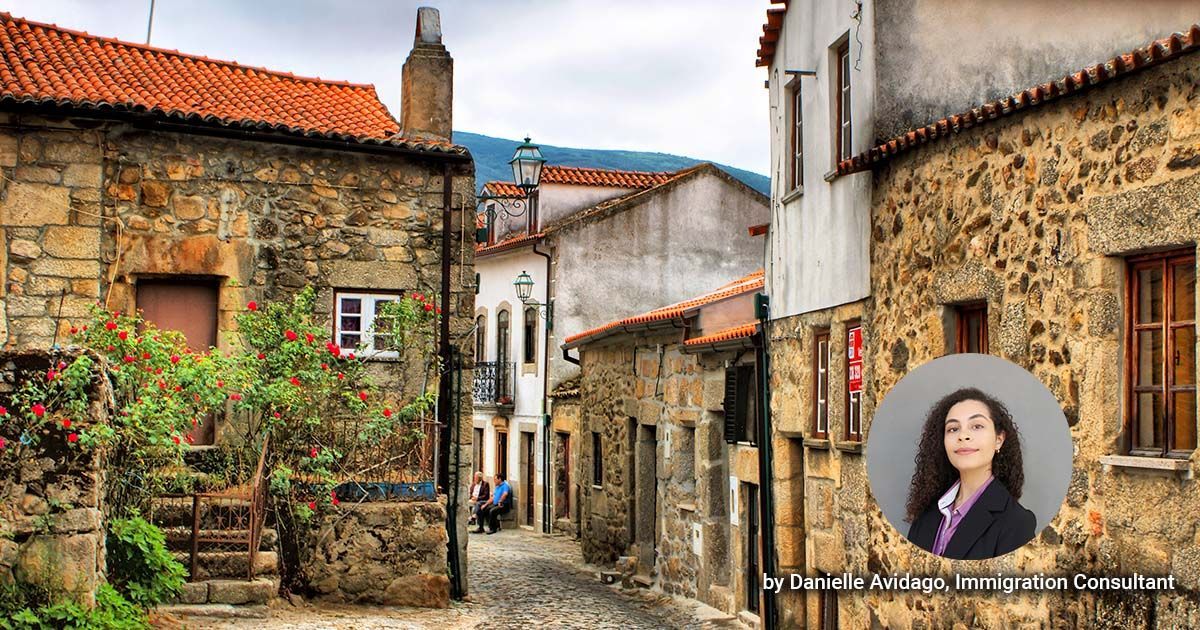Portugal’s New Action Plan for Migrations
The recently elected Portuguese Prime Minister has unveiled an Action Plan for Migrations on Monday, poised to reshape the landscape of the Portuguese immigration framework. As articulated by Luis Montenegro, "Portugal will not throw open its doors, but neither will it shut them tight," hinting at a nuanced approach involving increased migrant oversight, improved application scrutiny, and the cessation of existing mechanisms.
This dynamic Action Plan underscores the Government's earnest response to mounting grievances across four main areas:
- Immigration Regulation
- Foreign Talent Attraction
- Immigrant Integration
- Institutional Reorganisation
Acknowledging past migration policy missteps, the Government has put forth 41 tangible measures to navigate the prevailing challenges.
While initial perceptions might have dismissed this migration strategy as another theoretical exercise with distant repercussions, the swiftness with which legislative actions have commenced post-presentation has caught many off guard. Notably, several decrees have already reached the Presidency of the Republic for ratification and publication.
Analysing the Plan's primary pillar, Immigration Regulation, it outlines actions to:
- Revise entry protocols into Portugal
- Resolve pending issues and irregular statuses
- Safeguard the digital border control infrastructure
- Honour Portugal's prior commitments
- Conduct on-site inspections nationwide
Key reforms include discontinuing the Expression of Interest mechanism, enhancing Consular authority, establishing a dedicated task force for pending applications, and reinforcing oversight on entities authorised to issue Portuguese language certifications crucial for citizenship petitions.
Turning to the second pillar, foreign talent attraction, the focus is on sourcing overseas expertise aligned with Portugal's needs, attracting foreign students to local universities, and expediting family reunification processes.
Regarding the third pillar, Integration of Immigrants, it is crucial to underscore measures aimed at enhancing the professional and social integration of foreign citizens. This includes promoting access to the Public Healthcare System for all residents and strengthening the provision, coverage, and frequency of Portuguese language instruction.
Moving on to the fourth pillar, Institutional Reorganisation, the measures are designed to reassess the competencies of entities that assumed functions in the previous term with the opposition party. The goal is to decentralise issue management, empowering municipalities and civil society.
Noteworthy is the introduction of the Social Golden Visa under the Golden Visa (ARI) programme. This innovative option aims to attract private capital for social investments in immigrant integration projects, including infrastructure for reception, integration initiatives, and assistance for vulnerable immigrants. The Government recognises the value of this residency-by-investment programme as a tool to implement the Migration Plan and the "Build Portugal" initiative.
Additionally, there are indications of a new Golden Visa option for investing in projects that facilitate affordable housing solutions. Although details and timelines of this new Golden Visa investment option remain speculative, the description suggests promise. However, its successful implementation and capacity to attract substantial investments may pose challenges, akin to the current Golden Visa Cultural option.
Below is the comprehensive listing of the 41 measures announced, each designed to optimise processes and improve overall effectiveness.
- Termination of Expression of Interest Procedure: The regularisation process for applicants without a residence visa will be concluded, introducing a transitional period.
- Consular Capacity Enhancement: Main Consulates will see an increase in response and processing capabilities, emphasising workforce attraction and seasonal migration.
- Entry Channel Prioritisation: Channels for family reunification, young students, and qualified professionals will be prioritised. Streamlined procedures for visas and residence permits for citizens of CPLP countries.
- Mission Structure Establishment: A task force will address over 400 thousand pending processes in four stages: hiring, training, online analysis, and in-person conclusion. Utilisation of alternative facilities to expedite processes.
- Border Control Infrastructure Intervention: Urgent enhancements to existing border control systems, IT infrastructure, and databases with a focus on investment and maintenance.
- Border Control System Acceleration: Implementation of new entry and exit border control systems (smart borders) - EES and ETIAS for operational readiness by summer 2024 and full operation by October 2024.
- Airport Border Congestion Alleviation: Measures to reduce congestion and delays at Lisbon and Faro airports.
- CPLP Mobility Agreement Strengthening: Operational framework enhancements to facilitate Schengen Area access, extension of expired permits, and visa application process streamlining.
- Resettlement Commitments: Confirmation and execution of commitments to relocate beneficiaries and international protection applicants.
- EU Migration Plan Implementation: Development and execution of the National Plan for the European Union Migration and Asylum Pact.
- Temporary Installation Centre Capacity Increase: Augmentation of Spaces Equivalent to Temporary Installation Centres.
- New Temporary Installation Centres Construction: Collaborative construction with legal and civil society support for enhanced capacity.
- Procedural Speed Mechanisms: Implementation of streamlined processes for judicial appeals in immigration and asylum cases.
- Return System Enhancement: Unification of skills for more efficient and humane return procedures across police forces.
- Multi-force Inspection Team Establishment: Creation of a team to combat abuses like human trafficking, illegal immigration, and labour exploitation.
- Portuguese Language Audit: Conducting an audit on linguistic training processes for Portuguese citizenship acquisition.
- Human Capital Attraction System Development: Aligning human capital attraction with the country's needs.
- Qualifications Recognition Process Enhancement: Improvements in recognising qualifications and competencies.
- Professional Training Encouragement: Encouraging training and qualification of foreign citizens with local entity support.
- Labour Needs Survey: Conducting a survey to align foreign worker supply and demand.
- Foreign Student Integration Support: Increasing scholarships and support for foreign students in Higher Education Institutions.
- Asylum Seeker Capacity Expansion: Increasing reception centre capacities for refugees and asylum seekers.
- Unaccompanied Minors Reception: Enhancing residential unit capacities for emergency reception of unaccompanied minors.
- Urgent Accommodation Capacity Enhancement: Increasing temporary and urgent accommodation capacities for immigrants, refugees, and protection beneficiaries.
- Immigrant Labour Market Integration Facilitation: Streamlining professional integration of immigrants into the national labour market.
- Emergency Reception Centres Establishment: Establishing Emergency Reception Centres in collaboration with Municipalities.
- Neighbourhood Integration Projects: Implementing integration projects in critical neighbourhoods under municipal coordination.
- Portuguese Language Teaching Improvement: Strengthening the teaching of Portuguese as a Foreign Language.
- Multilingual Materials Provision: Offering multilingual materials and guidelines, including functional Portuguese.
- Basic Education Equivalences Simplification: Simplifying the process for granting equivalences in basic education.
- Health Service Access Promotion: Promoting and facilitating immigrants' access to the National Health Service.
- Private Capital Investment Instruments: Developing tools to direct private capital towards social investments in immigrant integration projects.
- Foreigners and Borders Unit Establishment: Establishment of the Foreigners and Borders Unit at PSP – Polícia de Segurança Pública (Public Security Police).
- AIMA Restructuring: Restructuring AIMA – Agência para a Integração, Migrações e Asilo (Agency for Integration, Migrations, and Asylum) competencies and internal organisation.
- AIMA Resource Enhancement: Improving human and technological resources to improve productivity and quality control.
- Residence Permits Renewal Responsibility Transfer: Transferring the renewal responsibility from IRN - Instituto dos Registos e do Notariado (Institute of Registries and Notary Affairs) to AIMA.
- Sectoral Identification Services Expansion: Increasing in-person services for immigrants to request sectoral identification numbers.
- Migration Observatory Restoration: Restoring the Migration Observatory as a State entity for informing public policy.
- Migration and Asylum Council Redefinition: Redefining the Council for Migration and Asylum's role as an autonomous consultative body.
- Association Financial Support Enhancement: Strengthening financial support for immigrant and civil society associations in the sector.
- Local Support Centres Establishment: Strengthening local responses through the establishment of Local Support Centres for Migrant Integration.
These developments are indeed positive news for applicants who have been affected by delays caused by various challenges. The COVID-19 pandemic has created significant disruptions, and the influx of Ukrainian refugees has added to the strain on services. Additionally, there has been a notable surge in applications, further complicating the process. Service disruptions have also played a major role in causing these delays. Therefore, the recent progress is a welcome relief and brings hope to those waiting for their applications to be processed.
Should you wish to further discuss this matter, please feel free to
reach out to us at any time.











